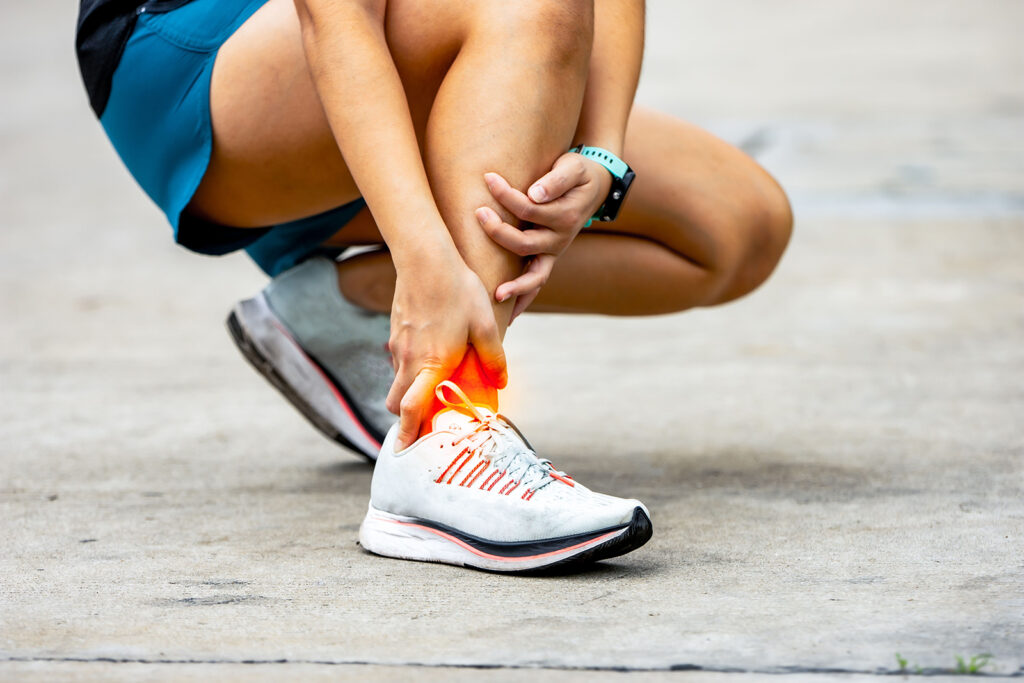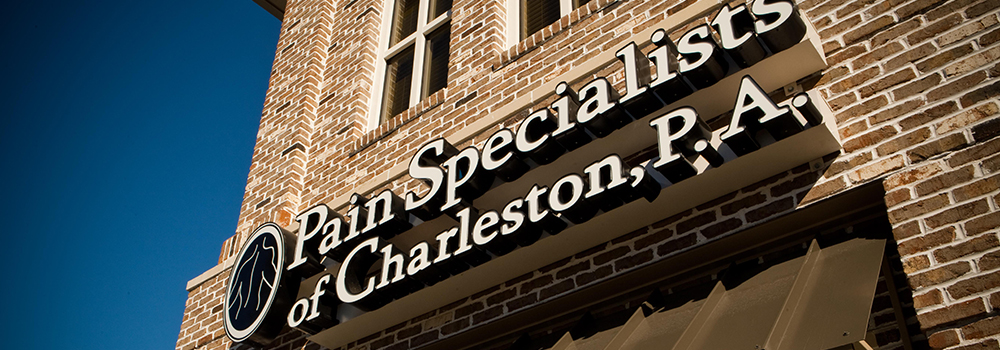The excitement of crossing the finish line after a race can’t be beaten – the surge of adrenaline as the finish line comes into view, the joy of being handed the finisher’s medal, and that nagging pain at the back of your ankle…
As a runner, you’ve likely experienced both the joys and the pains that come with life on your feet. While runner’s knee and shin splints have become part of your lifestyle, the discomfort you feel in the back of your ankle is new territory.
Overuse of the Achilles tendon is often attributed to the pain you feel following a run, but what is it, and how do you stop the pain?
Keep reading to find out what our board-certified physicians at our pain management clinic have to say!

What is Achilles Tendinitis?
Achilles tendinitis is the inflammation of the Achilles tendon, the tissue that connects your calf muscle to your heel. It is a common sports injury among athletes or highly active people, with about 24% of athletes developing the injury during their lifetimes.
There are two types of Achilles tendinitis: noninsertional and insertional.
Insertional Achilles tendinitis affects the lower part of your heel, where the tendon connects to the heel bone. Noninsertional Achilles tendinitis occurs when the fibers in the middle of your tendon begin to break down and swell. While the former can affect anyone, the latter is an injury primarily found in active individuals.
Symptoms of Achilles Tendinitis
The most obvious sign of an Achilles tendon injury is a mild ache or pain in the back of the leg or above the heel. Other signs of an Achilles tendinitis injury may include:
- Stiffness or tenderness
- Leg weakness
- Swelling around the Achilles tendon
Pain may worsen, or symptoms may become more severe after prolonged exercise, climbing stairs, going uphill, or even first thing in the morning. If you are experiencing severe pain in your heel or the back of your leg, visit a pain management physician near you as soon as possible.
Is Overuse the Only Cause Behind Achilles Tendinitis?
Running and Achilles tendon pain often go hand-in-hand, the most common cause being overuse or repetitive strain from pushing your body past its limit too quickly. A sudden increase in your running mileage or adding hills to your running routine can overload your Achilles, resulting in inflammation and pain.
But what if you have always been adamant about gradually upping your miles and proper stretching and conditioning but still feel the nagging pain that only seems to worsen?
Here are some other causes that could be behind your Achilles pain when running:
Improper Form
Sometimes, it’s not always how far or how often you run that’s the problem, but rather HOW you run. Landing heavily on your heels or overpronation of your feet while running can put undue stress on your Achilles, resulting in potential injuries like Achilles tendinitis.
Out with the Old Shoes
Just like the tires on your car can hinder its overall performance and capabilities, your shoes can make – or break – your body’s ability to run. Your running shoes act as shock absorbers during your run, absorbing the impact as you move. When those shock absorbers wear down, it can put undue stress on your Achilles, leaving you with lingering pain.
Sudden Burst of Intensity
Have you ever signed up for a race, got sidetracked, and realized the race is coming up in less time than you’ve had to adequately train for it?
We’ve all been there. While you may think upping your running mileage will help prepare your body for race day, doing so may cause more harm than good.
Ramping up your training regimen too quickly, such as adding in more mileage than your body is accustomed to or adding some uphill climbs to your workouts can put stress on your Achilles tendon before it has time to adapt. As a result, when race day comes, you may find your Achilles inflamed and irritated rather than ready to run.
How to Alleviate Achilles Tendon Pain
While Achilles tendinitis can heal on its own with some much-needed rest and rehabilitation, this is not always the case. If you fail to rest or seek treatment, your Achilles tendon could rupture or turn into Achilles tendinosis.
But we won’t let that happen if we can help it.
As the leading clinic for pain management in Charleston, SC, our board-certified physicians are adept at interventional pain management treatment techniques that don’t rely on surgery or habit-forming medications to ease your symptoms.
After an initial consultation, our physicians will develop a personalized treatment plan for your pain management. Possible treatment options for Achilles tendinitis may include:
- Physical therapy
- Shockwave therapy
- Orthotic devices (such as a shoe insert, brace, etc.)
- Corticosteroid injections
- Platelet-rich plasma injections
If you are seeking Achilles pain management near you, schedule an appointment with our physicians to get started on a personalized interventional treatment plan today.

Don’t Let Achilles Pain Keep You From Being Active on Your Feet – Visit Pain Specialists of Charleston Today!
As the leading Charleston pain management clinic near you, our team believes you should never have to learn to live with your pain.
We take a non-surgical, customized approach to pain management to offer you much-needed relief and a better quality of life.
Don’t let your Achilles pain stop you from getting back on your feet! Schedule an appointment with the Pain Specialists of Charleston!
Request Appointment | Meet Pain Doctors | Contact Us | Visit Us
Additional Helpful Articles:
What Should I Expect During My First Pain Management Appointment?
Interventional Pain Management: Everything You Need to Know
What Does a Pain Management Physician Do?
Can a Medical Massage Actually Relieve My Chronic Pains?
What’s the Best Leg Pain Treatment Without Surgery?
Charley Horses: Understanding the Pesky Midnight Muscle Spasms
When Should I See a Doctor for Runner’s Knee?
Get to Know Pain Management Physicians:
Our Services:
Diagnosis | Treatment | Interventional Pain Management | TRICARE | Wellness | Clinical Trials | Worker’s Compensation | Neurology | Imaging/ MRI
Published March 2025
